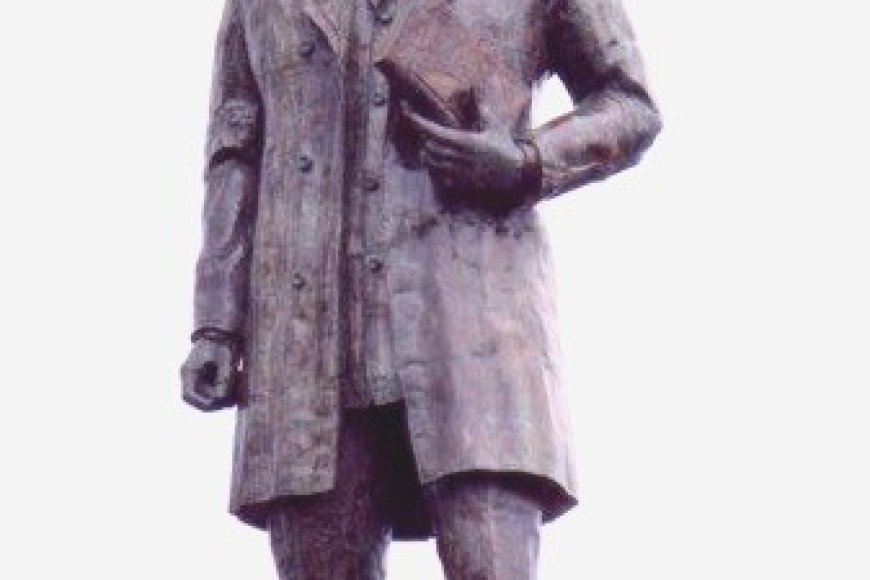Wednesday, April 23, 2025 | 2 a.m.
The Nevada Senate narrowly approved legislation Tuesday that would gradually double minimum liability insurance requirements for larger commercial vehicles making intrastate deliveries.
Senate Bill 180 would increase coverage requirements from $750,000 to $1.5 million by 2030 for carriers exceeding 26,000 pounds, changing a federal standard untouched for four decades.
Supporters call the measure essential for road safety, while opponents worry about increased operational costs for businesses. The bill, introduced by state Sen. Edgar Flores, D-Las Vegas, moves to the Assembly for consideration.
“I don’t think anybody would agree that the last time we should have touched anything involving coverage should have been 1980 in a state that’s changed and evolved so much, that has so many more people,” Flores said.
SB 180 passed 11-10; every Republican senator opposed it, and they were joined by two Democrats, Sens. Dina Neal of North Las Vegas and Angie Taylor of Reno.
Sen. Ira Hansen, R-Sparks, spoke in “strong opposition,” saying the changes would disproportionately affect Nevadans since the federal standard wouldn’t change.
The rise would begin with a $1 million coverage requirement in January 2026, which Flores estimates would increase insurance premiums by about $1,000 per year per truck. Flores said a “jaw-dropping” conversation with the Nevada Justice Association spurred the bill when he learned the policy had been stagnant for decades.
The current standard doesn’t account for inflation and complicates the medical needs of anyone injured in an accident involving a freight truck, Flores said. Even with higher requirements, the bill would still fall below inflation adjustments, he added.
“Through that lens, we realized that ultimately, the $750,000 doesn’t even, at times, protect the business, much less the injured party if a mistake is made,” Flores said. “When you see how catastrophic some of these car crashes can be, it’s problematic.”
The National Highway Traffic Safety Administration reported in 2024 thatlarge trucks accounted for 7.1% of the total vehicles involved in fatal crashes in Nevada in 2022. That’s below the national rate of 9.6%.
SB 180 gained support from Teamsters Local 631 during a hearing earlier this month; opponents presenting testimony included the Nevada Farm Bureau, Vegas Chamber and Nevada Trucking Association — a nonprofit promoting trucking and bus industry interests.
Nevada Trucking Association CEO Paul Enos said SB 180 would disadvantage local companies since it wouldn’t apply to out-of-state haulers. He estimated that among some 11,000 trucking companies in the state, the legislation would affect 3,700.
Before Tuesday’s vote, Flores said his bill wouldn’t just affect local operations. He cited an example of an out-of-state company with a contract to move shipments from Southern Nevada to Northern Nevada. That company would also have to follow SB 180’s regulations, he said.
“It is not just local Nevada-based companies that are impacted by this,” Flores said. “It is individuals that are operating solely in the state of Nevada.”
Enos noted an ongoing shortage of truck drivers in the state. One method of mitigating that, he said, is employing owner-operators to move freight.
“Owner-operators are going to be the folks, especially the local guys, that are going to be hit the hardest by this, the ones that typically have the smallest margins.” Enos said. “And those are my folks that, when their insurance rates go up to a point where it doesn’t pencil out, they close their doors.”
New Jersey is the only state with a similar legislative framework. The remaining 49 follow the federal standard.
What presenters described as a modernization to the insurance requirements, Hansen dismissed as unnecessary.
“It indicates to me there really isn’t that big of a problem at $750,000 if only Nevada, if we pass this, and New Jersey would then have that level of mandatory coverage,” Hansen said at the initial hearing earlier this month.
He questioned the motivations behind SB 180, pointing to injury lawyers and their billboard advertising campaigns on Nevada’s roadways.
“If we increase this to $1.5 million, that is simply dramatically expanding the size of the deep pocket that’s available for a lawsuit,” Hansen said. “And that’s the real goal, in my opinion, it’s not public safety and saving everybody’s lives.”
He later clarified that his comments were directed at the Nevada Justice Association and not Flores.
Flores said anytime an attorney speaks in the Legislature, people perceive they’re seeking something to litigate.
“The reality is, we have insurance. It’s mandated statewide for every single driver. That’s the truth today,” Flores said. “I think if there was a discussion of just money, I think they would have gone for a number that reflected inflation.”
Flores added that the federal standard doesn’t always consider the state’s best interests.
“We have an obligation to look at our state,” Flores said. “Because we recognize that not every single state has the same population, has the same issues, has the same concerns.”
.png)








 English (US) ·
English (US) ·